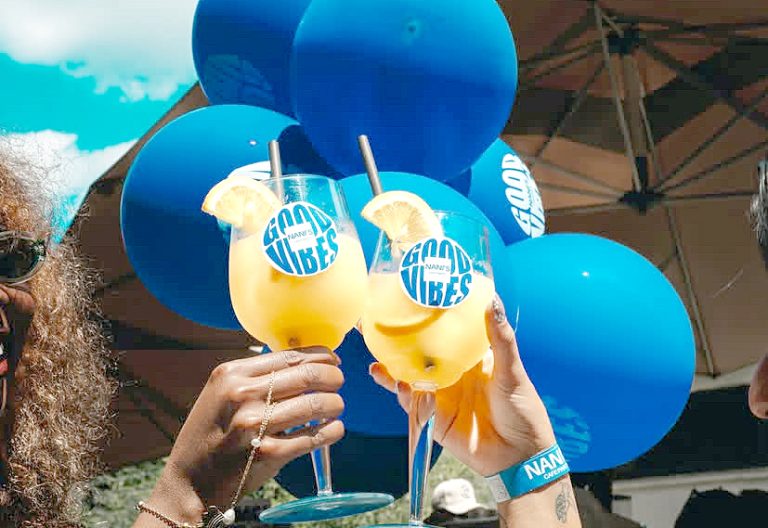How a coffee-fueled rave is redefining Nairobi’s alcohol-free nightlife
By Ian Okal, June 12, 2025What is a party without alcohol? A foreign concept, one might assume. Like a courtroom without objections or a Friday night without traffic on Waiyaki Way.
The kind of idea that sounds suspiciously like a health podcast pitch, all green juice and awkward side hugs.
But here is the kicker, not only does it exist, but it is thriving and not in Berlin or Brooklyn. It is happening right in the heart of Nairobi.
Walk into Nani’s Café Party, and you are met with something that feels like a paradox in motion.
The speakers are alive with amapiano, and sneakers are sliding across the concrete. There is coffee, yes. Cold brew, yes.
But not a drop of alcohol in sight. Just bodies moving and a soft morning sun.
Not a wellness event
Nani’s is not a regular café. And this is not a pop-up wellness event. The space is carved intentionally to feel casual but curated like a living room thrown open to Nairobi’s social misfits, introverts, and curious extroverts alike.
At the heart of it are its three co-founders, Zanelle Wanja, Shawn Mwirebi and Sendey Lenaola. Their initiative, under the umbrella of Qaramel Collective, reflects a commitment to fostering community and redefining what it means to socialise in Nairobi.
The music, mostly house and amapiano, is played loud enough to feel but never so loud that you have to yell.
In one corner, someone sketches quietly. On a low bench near the DJ booth, a small group plays cards. Conversations drift between mental health, books, and oddly specific herbal teas.
There are activities not programmed, just naturally occurring. Open mic sessions flow into journaling corners. Strangers pass around decks of conversation cards meant to stir things deeper than small talk.
Sobriety as the default
The drinks menu reads like a botanical experiment: hibiscus and lemongrass, tamarind fizz, match with almond milk.
There is no sign of alcohol, but there is also no apology for it. It is not framed as a detox, a temporary fix, or a “responsible” alternative. It is simply the default.
And that quiet reversal-treating sobriety as the baseline rather than the exception, changes the entire social atmosphere.
“At no point today have we said alcohol is the problem. However, our relationship with it is a different conversation altogether,” says Shawn.
Being here feels surprisingly full. Without the buffer of alcohol, interactions tend to unfold more deliberately. Strangers become acquaintances in real time, not just in blurry Instagram stories.
People talk without checking their phones every few minutes. There is an unspoken permission to be awkward and to not have to fix it with another drink.
A new kind of nightlife
Part of the appeal is no hangovers, no dread-filled Sunday afternoons. But it goes deeper than convenience.
Events like Nani’s are part of a broader rethinking of Nairobi’s nightlife, where exhaustion has become a default setting and fun often feels like an endurance sport.
Instead of escape, what these spaces offer is presence. Instead of abandoning control.
The attendees are mostly in their 20s and 30s. People who still love music, still love a crowd, but are increasingly wary of what the city’s party scene demands from them.
It is not that anyone here has declared war on alcohol. It is that, for once, it is not the main character.
And for many, that feels like a relief.
“Sober is not the headline,” said Effie Wambui, who has come to every edition since the pilot event.
“The headline is, this feels good. Like, actually good. Not good for now and then I will deal with it tomorrow.”
A generational shift
The rise of spaces like this coincides with a larger shift among Gen Z and late millennials in Nairobi, a generation shaped by information overload, economic pressure, and mental health awareness.
Many are not quitting drinking entirely. They are just asking different questions about their social lives.
Who am I when I do not need a drink to unwind? What does fun feel like when I can remember it?
Some come because they are taking a break. Others because they are exploring sobriety permanently. And some because they just want to dance at 10:00 am and still have lunch plans after.
These events meet people where they are without preaching, without shame.
A quiet reinvention
More gatherings like this are beginning to appear in gardens, rooftops, and bookstores each one nudging Nairobi’s party culture into a new shape.
Less performative, more intentional. Less about checking out, more about tuning in.
The story of Nani’s Café Party is not one of rebellion but of quiet reinvention.
It is not just rejecting the old formula, music plus alcohol equals a party, but proving that something else is possible. Something lighter.
Something easier on the body and the mind. And for a city where life is often lived at full tilt, that possibility is more than a novelty. It is a lifeline.
So when people come barefoot, hoodie-clad, coffee in hand, they are not just looking for fun.
They are looking for clarity. For connection. For versions of themselves, they had forgotten they could be on a weekend morning. And maybe, just maybe, that is the future of partying in Nairobi, less about forgetting, and more about remembering.
